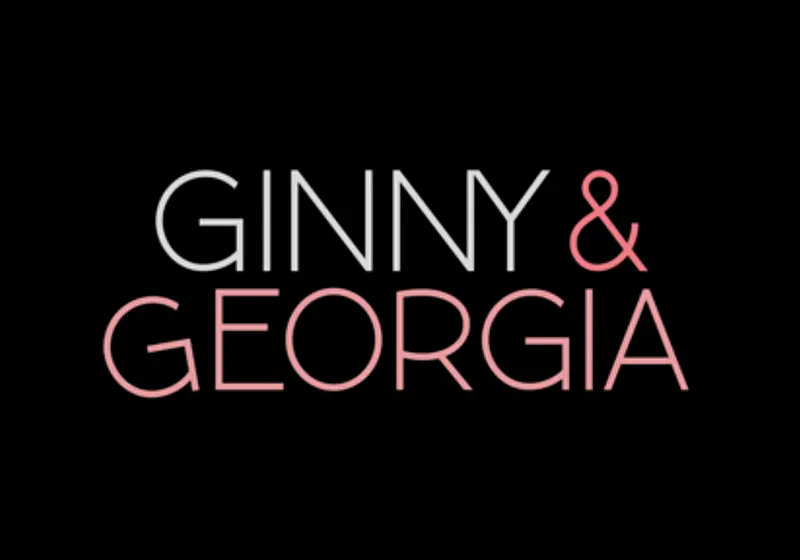Let us slide into your dms 🥰
Get notified of top trending articles like this one every week! (we won't spam you)Trigger Warning
This show portrays topics such as sexual assault, abuse, and self-harm, and death. If any of these topics are too heavy and personal for you, viewer & reader discretion is advised.
This article contains spoilers

Take the Quiz: Which Generation Matches Your Personality?
Discover the generation you truly belong to!
Meet Ginny and Georgia
Ginny and Georgia follows the story of Mary Atkins, aka; Georgia Miller, and her story to save herself, and protect her family. The story starts out with the death of Kenny, a short-lived, yet important character. And follows our main characters, Georgia, Ginny, and Austin Miller to the small town of Wellsbury, Massachusetts. The show is a compilation of flashbacks and present-day details of Georgia's life which reveal the pains, trials, and tribulations she's had to go through just to keep her family safe.
The Rare Diversity and Inclusivity
I was pleasantly surprised when I first turned on Ginny & Georgia, a show that looks like real life. Different ethnicities, family structures, disabilities, and sexualities being portrayed in a normal way. If you're looking for a show to break the ever-present stereotypical tropes, Ginny & Georgia is definitely the way to go.
The Millers-
Georgia Miller, who became a single mother at the age of 15, raising her two children; half-siblings of different races who always saw each other as whole family. It was refreshing to see this in media entertainment. I feel like most of the time in TV shows, they put emphasis on family members being half, yet I've never seen or even thought to have seen my two sisters in a different light, even though my eldest sister and I have different fathers, she's always been and will always be my whole sister. I can't imagine thinking of the two differently.
Zion Miller is Ginny's dad. He never married Georgia, but gave her and both her children his last name. When Zion is around Austin, he treats him like his own son even though he isn't. The Millers are a complicated, yet beautiful and complete family.
The Bakers-
Ellen and Clint Baker, parents of twins, Maxine and Marcus Baker, really have their hands full. Ellen is the Matriarch, she's your stressed-out, overworked mom who never lets anything stop her. The Baker family is probably my favorite in the show because of their multimedia uniqueness.
Clint is deaf, and Maxine is gay, and neither of the two are stereotypes. Clint, much like every other deaf person is just that, a person. He carries on through life just like the rest of us, with the modifications he needs. Their family is supportive, they sign just as they verbally speak even when Clint isn't in the room, as well as teaching those who don't have exposure to people with auditory disabilities how to be inclusive.
Maxine is unapologetically herself. She walks through life just as most of us do, she's a teenage girl living her life, looking for love, and healing from heartbreak. Max does what makes her happy, sometimes she's a little oblivious to those around her and gets caught up in herself.
She is unique in every way. In the first season of this show, Max experiences her first love with an older girl named Sophie. She and Sophie love each other, but are ultimately in different parts of their life, Sophie is moving on to college at the end of the year and decides to break up with Max since she still has two years left of high school. This is a scenario many, including myself, have gone through or gone through something similar.
“The Oppression Olympics”
Ginny and her first boyfriend, Hunter are both biracial, Ginny being black and white, Hunter being Taiwanese and white. One day Hunter and Ginny get in a fight that Hunter coins as the “Oppression Olympics”, which shined a lot of light on yet another overlooked issue. This issue of course being the Model Minority.
The Model Minority is a structure set in place by oppressors to keep minorities fighting against each other instead of banding together to empower all. Essentially, Model Minority is the myth that “if you act more white, we'll except you, we'll treat you white”, which quickly becomes an us-vs-them of “you have it better because you're more white than me”.
It's most often used as a tool to pit black and AAPI people against each other, but it is also the reason why biracial individuals feel as if they don't have a place.
The Oppression Olympics scene is one I view as a scene of great importance. It's a very seamless introduction into a problem that remains looked over by many.
Feelings Evoked
I have been alive for almost 18 years, and can I just say; Finally! A show that reflects me. There were moments watching the new Netflix Original Series where I wanted to break down in tears because finally!
I could relate. I've never been able to relate. I am biracial, I'm part black, part white, and in a society where you're made to pick, you never really fit in with one or the other.
I watched the entirety of Ginny & Georgia in just one day, and the next I sat down to watch it again with my mom this time. That night I started rewatching it, when I went to go to sleep it set in, and I broke down crying. She looks like me, she’s not only a main, but a title character, and I have never seen that before.
All I can say is; Finally. Finally, my problems, my daily struggles, they’re recognized, they’re validated, they matter.
I could feel that ponytail scene as if it were me in Ginny's place, the misunderstanding friends, the look she got from the hairstylist, the way the stylist grabbed her hair not knowing what to do with it, the embarrassment she felt when her hair turned to pure frizz because you can't dry brush mixed hair, I internalized Georgia's tone and words when she was fixing the aftermath...
Growing up there were rarely any shows with black characters, even less with black main characters, I really only had That So Raven and Proud Family to look at when I wanted to see myself eventually there was a moment with Shake it Up that I felt a glimmer of seen-ness. Co-star of Shake it Up, Zendaya is biracial like me, but her character in the show, Rocky Blue, isn't. Both her parents are black.
I have gone my whole life feeling unseen, unwanted, and unaccepted by society. Being biracial, you feel very alone, you're never accepted as both because you're neither. This was something I didn't know other biracial people felt like until I met some people like me, and until I talked to my sister. Someone I shared a room with for most of my life, yet we both suffered in silence 7 feet apart from each other.
I was alone, then I saw Ginny, and it was like a weight was taken off of my shoulders. And it's not like her actress just happens to be biracial, her ethnicity is woven into the storyline! We had the same hair problems, and the same dumb questions asked by [occasionally well-intentioned] white people; like “What are you?
You're so exotic-looking!”, “Is it racist if...”. And the same even dumber statements like “this is the whitest black girl I've ever seen”, and “I'm going to marry a black man, so I can have mixed babies”, “I'm not racist, I voted for Obama twice”. And it was nice to hear someone finally talk about being too white to be black and not white enough to be white.
Life is a struggle when you live in the spaces between. To finally be seen is powerful. To finally know you're heard... I can't even begin to explain this feeling.











